9 Fitness Habits To Avoid if You Want To Stay Fit & Healthy After 50
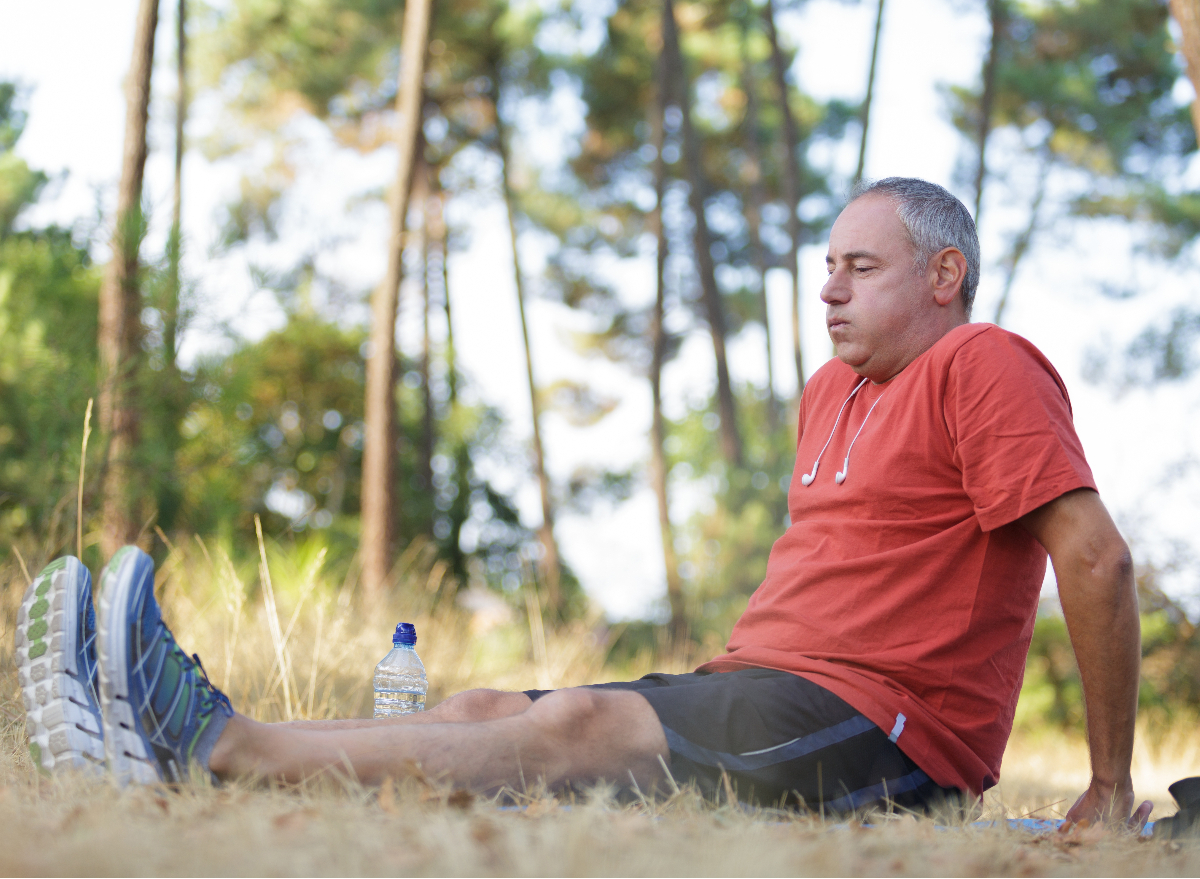
For those who are over 50, maintaining a regular fitness routine can help keep you healthy, strong, and fit well into old age. However, not all fitness habits are appropriate for older adults. As a matter of fact, some habits may cause more harm than good. That’s why we consulted with TJ Mentus, CPT, a certified personal trainer at Garage Gym Reviews, who explores nine fitness habits to avoid to stay fit and healthy after 50. By avoiding the following common fitness habits and incorporating various exercises into your routine, you can stay active and boost your vitality well into your 50s, 60s, and beyond.
Keep reading to learn all about the nine fitness habits to avoid to stay fit and healthy after 50. Then, when you’re done, check out these 7 Bad Habits That Are Killing Your Workout Progress.
You’re skipping warm-ups.
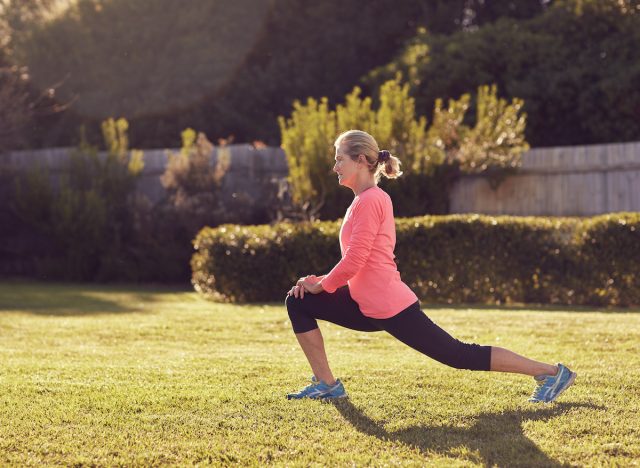
Research shows that warm-ups are crucial to preventing injuries—especially as you age. Skipping warm-ups can cause muscle strains and joint injuries, significantly affecting your fitness progress.
“A proper warm-up will increase blood flow to the muscles, helping to improve performance and reduce the risk of injury,” says Mentus. “Make sure to take at least five to 10 minutes to warm up with consistent movement that engages the muscle groups you’ll target in the workout.”
You’re pushing yourself to failure.

Next up in our fitness habits to avoid is over-working your body. Pushing yourself to the limit may seem like a productive way to work out, but it can harm your body in the long run. Research reveals that training to failure could increase your risk of suffering from overtraining and overuse injuries. That’s why it’s essential to listen to your body and not push yourself beyond your limits.
“After age 50, there’s little reason for the average person to perform a set to muscle failure; this will make it even tougher to recover from your workout and could cause an injury in the form of a muscle pull or tear,” Mentus cautions. “When doing resistance training, aim to leave two to three reps in the tank at the end of the set.”
You’re focusing on isolated movements.
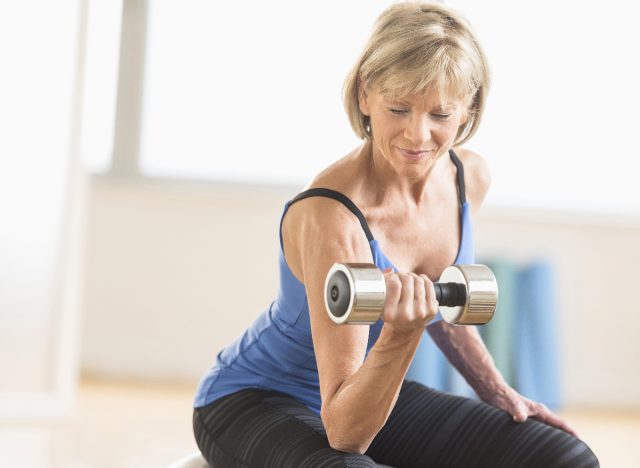
While isolated movements may help you target specific muscles, they can be less effective in improving overall fitness. Instead, focus on compound movements that activate multiple muscle groups at the same time, such as squats, deadlifts, and chest presses.
“Isolation exercises can be good for building muscle or rehabbing injuries but shouldn’t be the focus of your resistance training,” says Mentus. “Compound movements work multiple muscles simultaneously and can help keep joints strong and stable. They can also help with weight management because they require more effort from the body and will increase calories burned.”
Mentus suggests performing three or four compound movements in your workout, and then if you have lagging muscles, use one or two isolation exercises to help improve your weak areas.
You’re only doing cardio.

Cardiovascular exercise is essential for maintaining heart health, but it shouldn’t be your only type of exercise. Incorporating strength training into your routine can help you build muscle, which enables you to burn more calories.
“It gets more challenging for the body to maintain muscle as we age, making resistance training that much more important,” says Mentus. “Losing muscle can lead to weaker, less stable bodies creating more difficulties for the older population. Include two to three strength training days a week in your routine.”
You’re only doing strength training.
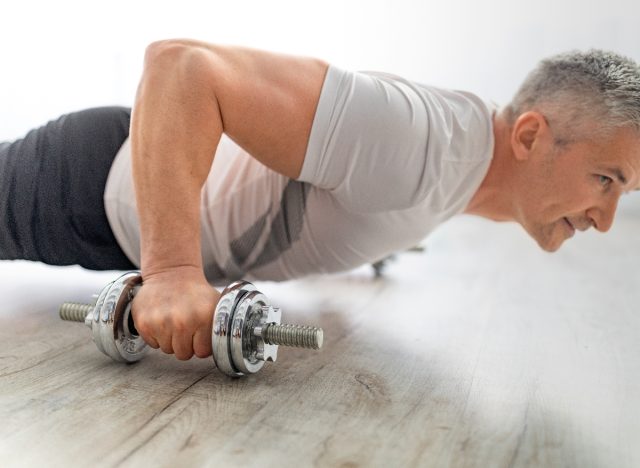
Strength training is beneficial for building muscle and improving bone density, but it’s not enough on its own. Including a healthy balance of cardiovascular exercise and strength training in your routine can help improve overall fitness and heart health, according to a 2019 study published in PLOS One.
“Cardio helps to improve and maintain the health of the heart and lungs, as well as providing benefits for weight and stress management. Try to reach one to two hours of cardio exercise weekly,” advises Mentus.
You’re creating too much muscle confusion.
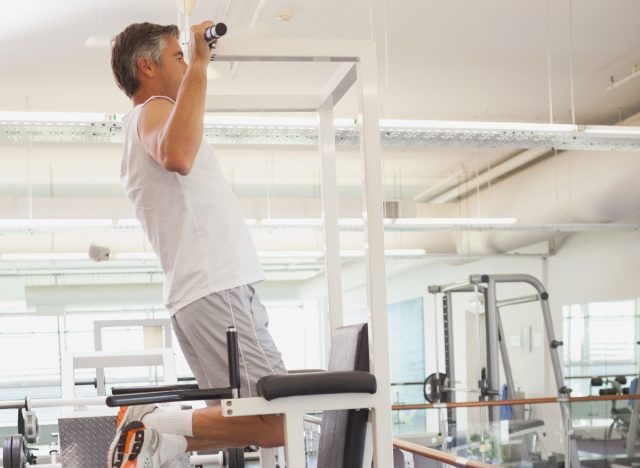
While switching up your workouts to prevent boredom and challenge your body is essential, too much variety can be counterproductive. That’s because it becomes challenging to track your progress and make improvements if you’re constantly changing your routine. Instead, stick with a routine for at least a few weeks before making changes.
“Switching up the workout routine can be good, so your body has to continue to adapt, but a good workout program will have trackable progression. Picking random exercises to keep the body guessing will not yield as good results as a program with progressive overload,” says Mentus.
Try performing the same group of exercises for six to eight weeks while gradually progressing reps and weight each week before switching up your routine.
You’re not getting enough sleep.

Sleep is crucial for nearly every aspect of your health, especially physical fitness. Lack of sleep can hinder your energy levels and recovery time, making it more challenging to maintain your fitness routine. Aim for the recommended seven to nine hours of quality sleep nightly.
“During sleep, the body works to repair itself and recharge. Poor sleep habits can lead to higher stress levels, weight gain, and lower life expectancy,” explains Mentus.
You’re not consuming enough protein.

Protein is essential for building and repairing muscle, which is vital for maintaining fitness and healthy aging. Not getting enough protein can result in muscle loss and slower recovery times. It’s recommended to consume at least 0.8 grams of lean protein per kilogram of body weight daily.
“Protein is the building block of our muscles, which becomes harder to maintain with age,” says Mentus. “Eating enough protein helps to prevent muscle loss and improve muscle growth. It can also help with weight management as it is more satiating than carbs and less calorically dense than fat.”
You’re working out alone.
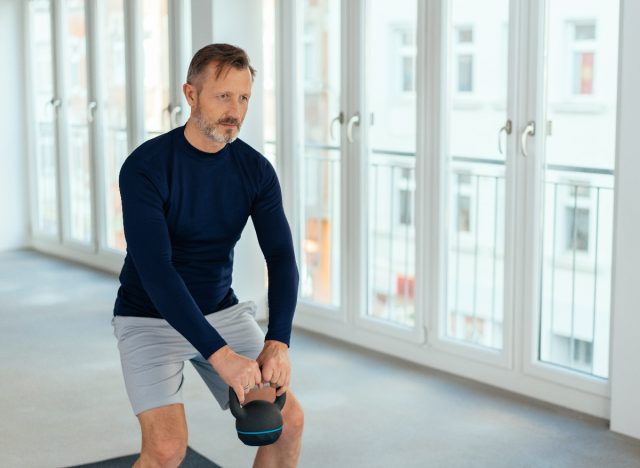
Working out with a partner or group can be beneficial in many ways. According to the Centers for Disease Control and Prevention (CDC), some of these benefits include motivation and consistency. In addition, it’s essential to have someone to spot you during strength training exercises and to have someone to share your fitness journey with.
“Having a workout partner helps with accountability since the other person depends on you to show up,” states Mentus. “You can also provide support to each other and encouragement when it gets tough. Humans are social creatures, and being able to share a workout with someone can help make it that much more enjoyable.”
- Source: https://www.ncbi.nlm.nih.gov/pmc/articles/PMC5833972/
- Source: https://pubmed.ncbi.nlm.nih.gov/17530977/
- Source: https://www.ncbi.nlm.nih.gov/pmc/articles/PMC6322789/
- Source: https://www.nhlbi.nih.gov/health/sleep/how-much-sleep
- Source: https://www.ncbi.nlm.nih.gov/pmc/articles/PMC6566799/
- Source: https://www.ncbi.nlm.nih.gov/pmc/articles/PMC4394186/
- Source: https://academic.oup.com/ajcn/article/105/3/714/4569695









